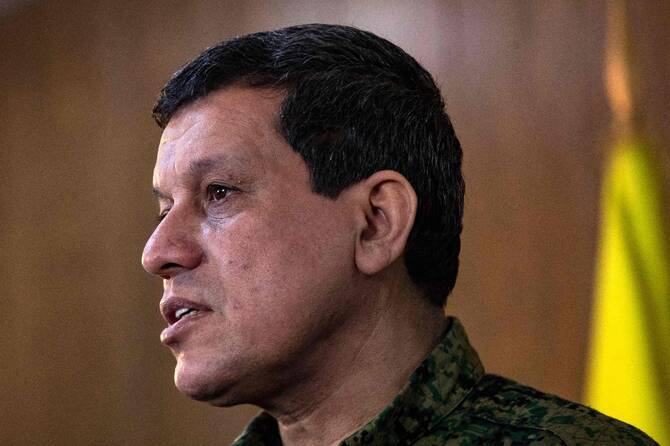Morocco says 2024 ‘hottest year’ on record

The year 2024 was Morocco’s hottest on record, the North African country’s meteorological agency said on Friday, mirroring the record surface temperatures measured globally.
In an annual report, the agency said it recorded an average temperature anomaly of +1.49 degrees Celsius (+2.7 Fahrenheit) last year compared to the 1991-2020 period.
“The year 2024 stands out as the hottest ever recorded in Morocco,” it said, adding that every month in 2024, excluding June and September, had been hotter than the average for the 1991-2020 reference period.
Several cities broke daily heat records, with 47.6 degrees Celsius (117.7 Fahrenheit) in Marrakech and 47.7 degrees Celsius (117.8 Fahrenheit) in Beni Mellal in July last year, the agency said.
It also noted “an increase in thermal anomalies, particularly during the autumn and winter seasons.”
Morocco’s all-time heat record was set in August 2023, when temperatures hit 50.4 degrees Celsius (122 Fahrenheit) in Agadir.
The country, which is enduring a seventh straight year of drought, registered an average rainfall deficit of -24.7 percent last year, the report said.
The agency said last year’s data reflected “an amplification of climate contrasts in Morocco, where prolonged droughts alternate with episodes of extreme precipitation.”
Torrential rains in September 2024 — causing floods and killing 18 people — “did not reverse the overall rainfall deficit,” it added.
Moroccan climatologist Mohammed-Said Karrouk, who also heads Morocco’s National Future Planet Committee, warned that the kingdom’s geography and climate make it more vulnerable to temperature extremes.
He said warming was now observed in all seasons.
“In autumn, lingering summer heat combined with gradually cooling temperatures favors violent downpours, which have become more dangerous due to excess humidity in the atmosphere,” he said.
“In winter, the heat originating mostly from warming tropical oceans now influences North Africa as well.”
A former member of the UN Intergovernmental Panel on Climate Change, Karrouk also warned of a recent intensification of the West African monsoon — a seasonal wind system that brings moist air from the Atlantic Ocean — which he linked to the deadly September floods.
He called for the construction of shelters to protect vulnerable populations and dams to capture water — a valuable resource with Morocco’s unrelenting drought.
Weather extremes have taken a toll on farming, a vital sector for Morocco which employs nearly a third of its active population and accounts for 12 percent of GDP.
Scientists say that recurring heatwaves are a clear marker of global warming and that they are set to become more frequent, longer and more intense.
Fuelled by human-driven climate change, 2024 was the warmest year on record globally — and 2025 is projected to rank among the top three.





